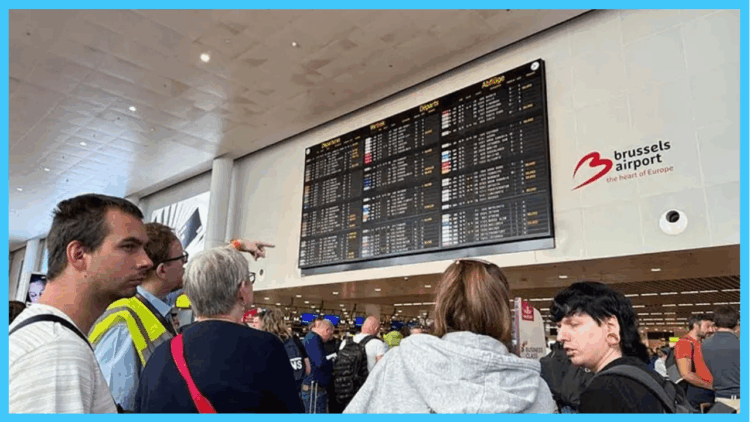LONDON; A large-scale cyberattack targeting a key aviation technology provider has disrupted operations at several major European airports, including London’s Heathrow, the busiest hub on the continent, causing widespread delays and cancellations.
The incident began late Friday night and continued into Saturday, impacting electronic check-in and baggage drop systems at Heathrow, Brussels Airport, and Berlin Airport. The disruption forced airlines to switch to manual check-in and boarding procedures, leading to long queues, flight cancellations, and hours of delays for passengers.
Collins Aerospace, a major supplier of check-in and boarding systems, confirmed the issue. Its parent company RTX said it had detected a “cyber-related disruption” to its software at selected airports but emphasized that the problem was limited to customer check-in and baggage handling. “We are actively working to fix the issue as quickly as possible,” RTX said in a statement.
Brussels Airport acknowledged that the outage had “a large impact on the flight schedule” and urged travelers to confirm their flight status with airlines before arriving. Berlin Airport also reported longer waiting times at check-in but said efforts were underway to restore services. Frankfurt Airport, Germany’s largest, and Zurich Airport confirmed they had not been affected.
Despite the widespread disruption, some major airlines, including EasyJet, reported no impact on their operations, while other carriers such as British Airways and Ryanair did not immediately comment. Polish authorities also confirmed that their airports were not affected by the cyberattack.
Meanwhile, our correspondent Asif Naveed adds that Pakistani aviation authorities reassured travelers that airports across Pakistan were operating normally and had not been targeted. “All airports in the country remain unaffected by the cyberattack in Europe. Operations, including immigration, airline services, ground handling, and RESA systems, are running smoothly,” the Pakistan Airports Authority said in a statement. It added that no glitches, cyber threats, or software failures had been reported in Pakistan’s aviation network.
The cyberattack highlights growing vulnerabilities in global aviation infrastructure, where heavy reliance on digital systems for passenger check-in and flight operations can create widespread chaos when disrupted.

























